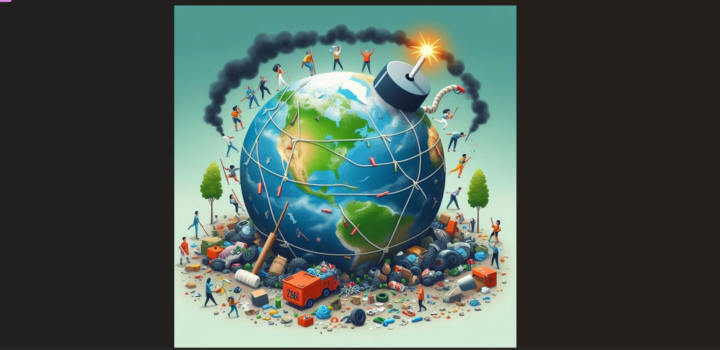The pandemic has certainly delayed India’s determined achieving of the United Nations Sustainable Development Goals (SDGs), but quality governance with the right intent can yet get India there.
The United Nations Member States adopted the SDGs, also known as the Global Goals in 2015 in a bid to end poverty, protect the planet, and ensure peace and prosperity by 2030. India took to setting up the SDG India Index to pave the way for its commitments in achieving them by prepping the states for sectors and issues like economy, environment, and gender parity. Till last year, India’s overall score improved from 57 to 60, with notable progress on SDGs 3, 6, 7, 9 and 11.
Read more: Indian Farmers Need Taobao Like Ecommerce Platform: Interview with Bindu Dalmia
While the world has been gearing up to meet the tough task of meeting these goals, COVID-19 has been making it that much harder for nations to stick to their global goals. India has been no exception.
India has put out the stance that rapid implementation of SDGs will streamline the path to inclusive and sustainable recovery from the impacting COVID crisis. Last week, NITI Aayog Vice Chairperson Rajiv Kumar reiterated the importance of SDGs at the High Level Political Forum 2020 ‘Accelerated Action and Transformative Pathways: Realizing the Decade of Action and Delivery for Sustainable Development’.
Bindu Dalmia, National Chairperson, Committee for Financial Inclusion, Niti Aayog, told The Tech Panda that she believes that while India has much to work upon, the intention to push forward also exists.

Bindu Dalmia
We are not lacking in intent, but yes, we will lack the financial resources to adhere to the time-frame of achieving SDG goals by 2030
“We are not lacking in intent, but yes, we will lack the financial resources to adhere to the time-frame of achieving SDG goals by 2030,” she says.
Still, India is reeling under the impact of the pandemic, leading to a certain delay in the achievement of the SDGs.
“As the fastest growing major economy of the world, India was uniquely placed to deliver on its commitments to inclusive and sustainable development till COVID struck. This can potentially derail the prospect of financial and social inclusion by many years,” she adds.
The Grim Numbers
The World Economic Outlook’s recent update has predicted a negative global growth with devastating consequences for developing nations. With the IMF projecting India’s growth forecast at 1.9% in 2020-21, where will additional financial resources come from to spend on social sector schemes?
Let’s take a look at the numbers. Due to the COVID-induced economic contraction, there is a decrease in corporate earnings reflected by a 76% decline in corporate taxes, a 64% decrease in personal income taxes, and 70% of household earnings have also been impacted. India’s banking system too will come further under strain due to deteriorating asset quality, plus there is already a lower CSR spend by companies.
As the fastest growing major economy of the world, India was uniquely placed to deliver on its commitments to inclusive and sustainable development till COVID struck. This can potentially derail the prospect of financial and social inclusion by many years
Dalmia says all of these data points reflect the acute fiscal strains in both the central government’s and the state governments’ revenues, as well as lowered corporate capacity to sustain social sector schemes.
“Further, there is a lot of contingency-spend that had to be incurred by the Centre to cope with building capacities to cater to the healthcare deficit, as also to increase welfarist spending to compensate displaced labour. So yes, all these factors will set us back by at least a decade in achieving our SDG’s,” she says.
Intent is Important
On the plus side, Dalmia says, quality governance at every level, that has the right intentions, can ensure that India comes back on track.
“SDGs can be met only through dedicated standards of governance at multiple levels. Despite our scarce financial resources due to relatively low per-capita income, a large population, and vast geographical expanse, India has thus far accomplished many ambitious goals,” she reminds.
Reinforcing India’s commitment to the national development agenda and SDGs, India has organized several forums to develop policy and action perspectives on elimination of poverty, promoting gender equality, and addressing climate change. The NITI Aayog has carried out a detailed mapping of the 17 Goals and the 169 targets to Nodal Central Ministries.
While the situation is pretty grim compared to pre-COVID times, it is noteworthy that the world was already united on the front of aspiring to achieve SDGs. No matter what sector, no matter what hindrances are in our way, we must take it in our stride and contribute according to our strengths.
As the UNDP says,
“Everyone is needed to reach these ambitious targets. The creativity, knowhow, technology and financial resources from all of society is necessary to achieve the SDGs in every context.”












